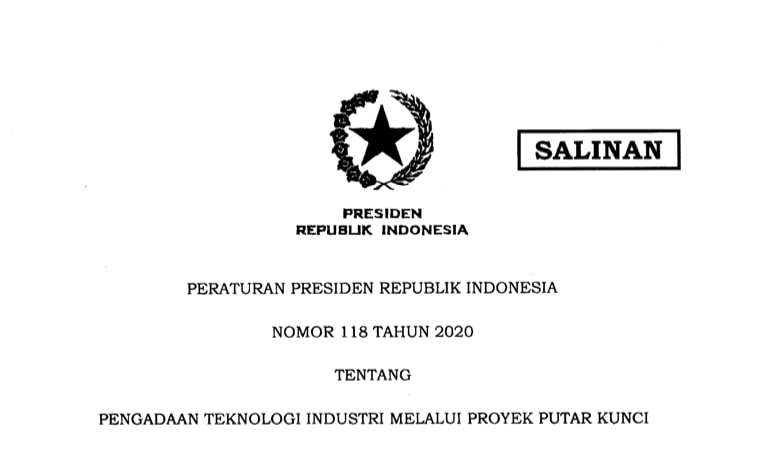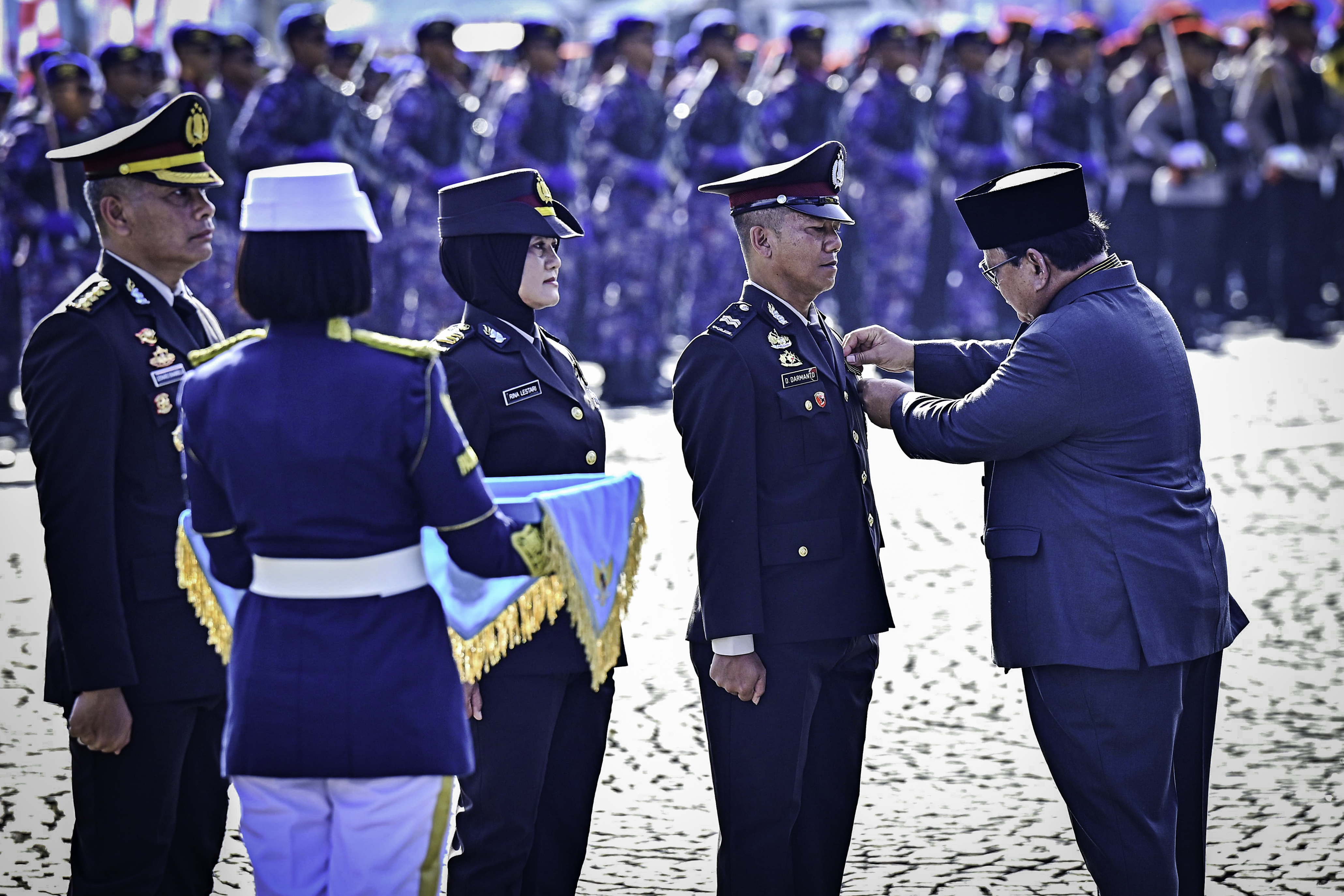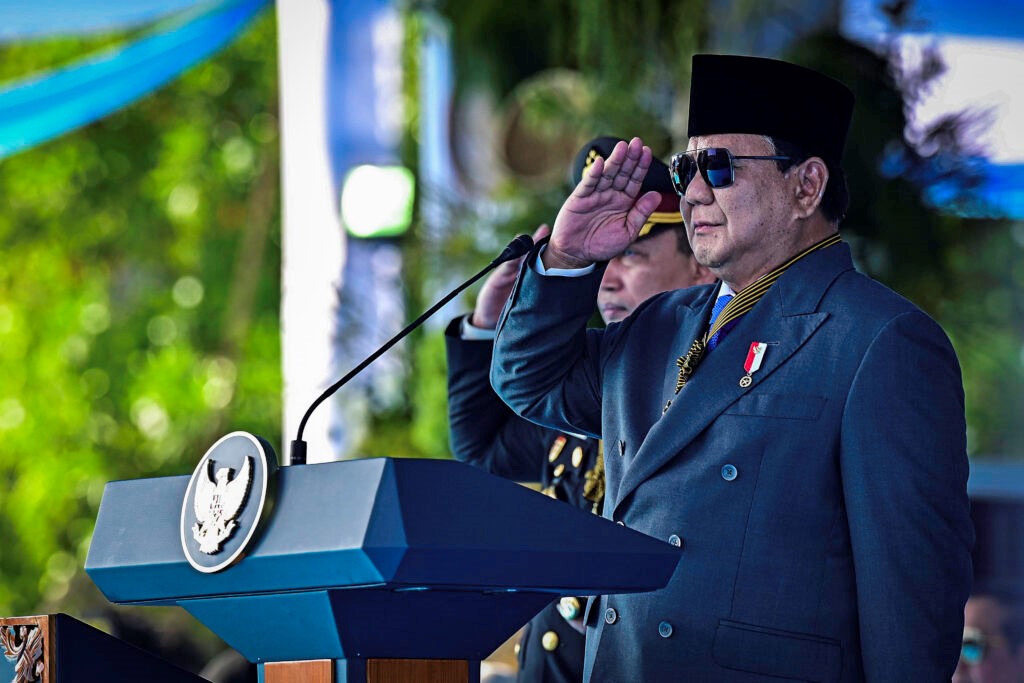President Jokowi Issues Regulation on Procurement of Industrial Technology through Turnkey Project

President Joko “Jokowi” Widodo, on 21 December 2020, has signed Presidential Regulation Number 118 of 2020 on the Procurement of Industrial Technology through the Turnkey Project.
The issuance of the Regulation aims to implement the provisions of Article 39 paragraph (3) of Law Number 3 of 2014 on Industry which has been amended by Law Number 11 of 2020 on Job Creation.
According to Article 1, Procurement of Industrial Technology through the Turnkey Project refers to the procurement of technology by purchasing a complete technology project starting from assessment, design and engineering, implementation (operation), and delivery in ready-to-use condition.
“The procurement aims to accelerate the mastery and application of industrial technology so that it can be mastered, utilized and developed domestically,” Article 2 reads.
In certain conditions, the Government may procure industrial technology through the turnkey project. These particular conditions include circumstances in which the industrial development is urgently needed while part of the technology or the whole technology has not been mastered domestically.
The urgent needs for Industrial development as referred to include the following conditions: a. the required industrial technology cannot be immediately procured domestically through research and development, research and development contracts, joint ventures, transfer of rights through licensing and/or technology acquisition; b. there is a threat to the sustainability of the domestic industry and/or the national economy; and c. there is a possibility to lose the opportunity to significantly benefit from industrial technology.
The procurement is carried out by taking into account various aspects such as efficiency, effectiveness, added value, competitiveness, independence, preservation of environmental functions, as well as security, safety and health.
The Regulation states that project proponents make plan for the proposed procurement. It must be included in the proposed procurement document.
Planning as referred to at least contains reasons for tthe procurement according to certain conditions; feasibility study; industrial technology audit; the scope, form and period of technology transfer carried out by industrial technology providers; identification of industrial technology providers; reliability status of industrial technology; socio-economic, environmental, security and safety impact analysis; value for money analysis; project financing, implementation and supervision schemes; risk analysis and mitigation; potential use of industrial technology; and stages of technology transfer process.
Project proponents, according to Article 6, may involve ministries/non-ministerial government agencies, academics, consultants, and/or business persons associations.
Procurement proposal documents are submitted to the verification team for assessment, assisted by the work team. “In conducting the assessment, the verification team refers to the national development planning,” it reads.
As stated in Article 8 paragraph (2), the assessment is carried out to determine that the proposed procurement has met certain conditions; determine the industrial technology to be procured through the procurement; determine the funding and/or financing mechanism; and establish a mechanism for the implementation of technology transfer.
The procurement is carried out by project proponents based on the determination of Procurement of Industrial Technology through the Turnkey Project. The determination of the procurement itself was carried out by minister as chairperson of the verification team based on recommendations of the work team.
Article 13 states the procurement can be carried out through three programs, namely procurement of government goods/services; assignment to State Owned Enterprises; or government cooperation with business entities.
The implementation of the procurement is coordinated by a verification team chaired by minister, with a steering committee consisting of four coordinating ministers. The verification team is responsible to the President.
“Funding needed in carrying out the tasks of the verification team comes from the state budget in the budget section of Ministry of Industry,” Article 32 reads.
The Presidential Regulation also regulates technology transfer. “Industrial technology providers are required to transfer technology to industrial technology recipients by involving project proponents,” Article 24 paragraph (1) reads.
Technology transfer is carried out at the planning stage; design and engineering; procurement; construction; commissioning; operation and maintenance; and/or decommissioning.
The Presidential Regulation was promulgated by Minister of Law and Human Rights Yasonna H. Laoly on 22 December 2020. (UN) (FI/LW)








